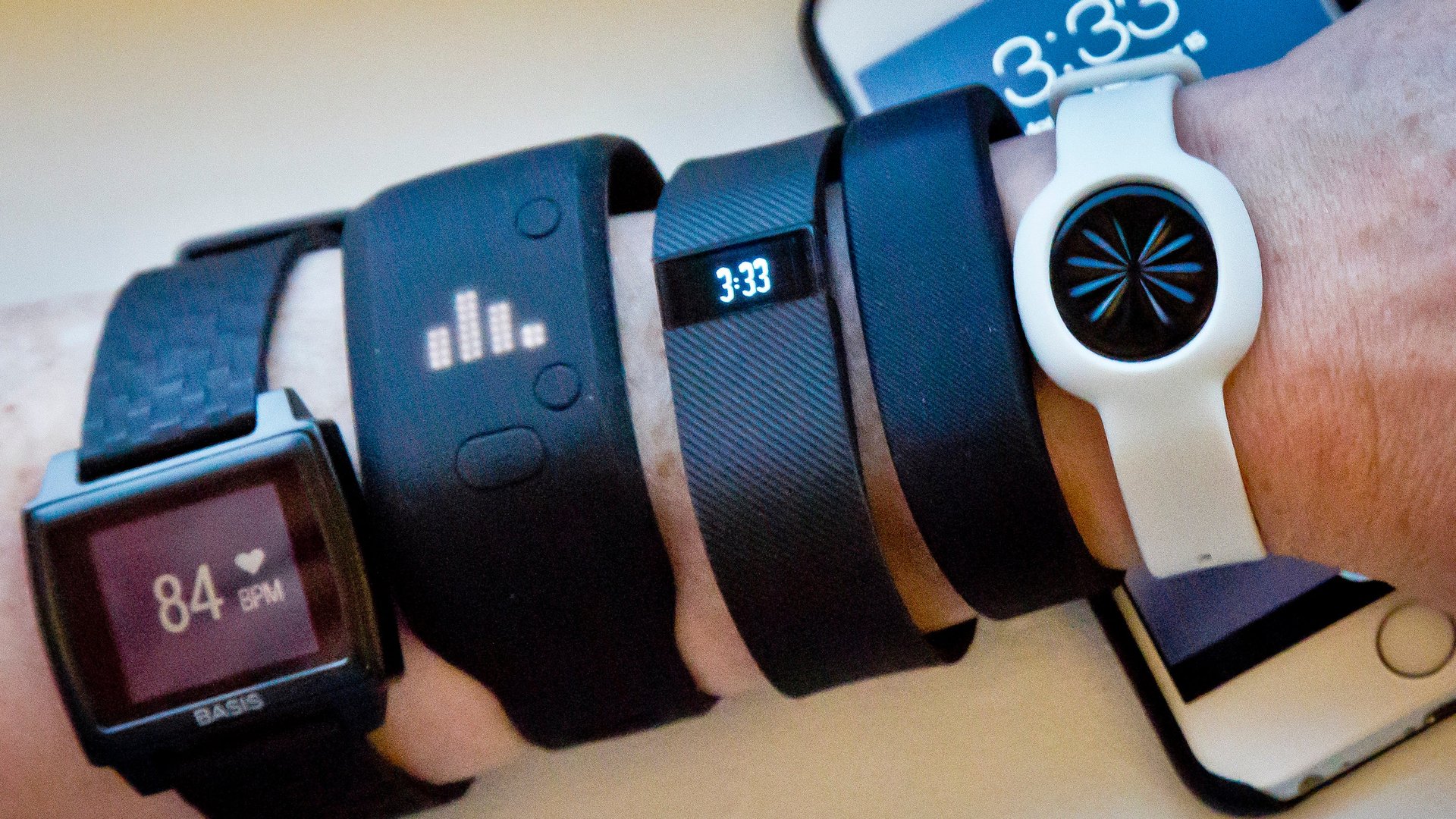Fitness trackers reveal the damaging pitfalls of the modern approach to self-improvement
Kaila Prins was excited when her office held a fitness challenge using the Nike Plus app. Employees would compete to see who could log the most miles—and Prins was determined to win.


Kaila Prins was excited when her office held a fitness challenge using the Nike Plus app. Employees would compete to see who could log the most miles—and Prins was determined to win.
But she was also deeply unhappy with her body, having already spent years dealing with anorexia and orthorexia. Determined to meet the goals set by her fitness tracker, she pushed herself harder and harder, eventually causing nerve damage after she exercised on a sprained ankle.
“The problem is, I was so keen on getting the most miles run that I kept going when I shouldn’t have,” Prins, who now works as a health and wellness coach, tells Quartz. Instead of listening to her body, Prins had relied on her app to quantify her health.
Wearable fitness trackers, or wearables, are designed to help people get more exercise and make healthier food choices. But the technology can take a dark turn if it ends up enabling an unhealthy preoccupation with fitness and weight. In fact, some dieticians, personal trainers, and other wellness experts argue that gadgets that track our calories and steps pose a problem for people who’ve been diagnosed with eating disorders, or who are prone to disordered eating and exercise habits in general.
“Some people can analyze these numbers without spiraling into negative patterns of thought,” personal trainer Garnet Henderson tells Quartz. “But many can’t. When I have a client who is prone to fall into self-hatred and negative thinking, I encourage them to place less importance on these numbers or even ignore them entirely.”
Unfortunately, avoiding fitness trackers is easier said than done. The new Apple Smartwatch, for example, automatically comes programmed with an activity monitor that can’t be deleted. The same goes for the Health app on iPhones in general. Meanwhile, Fitbits, Jawbones, and their ilk are increasingly popular accessories: an estimated 275 million wearable electronic devices will be sold around the world in 2016, an increase of more than 18% from the previous year, according to technology research company Gartner.
As wearables become increasingly common, it’s easier than ever for people with troubled relationships with their bodies to keep close watch over calories—without tipping anyone off. Fitbit offers everything from Zip, a tiny wearable that can fit in your pocket, to a stylish fitness watch designed by Tory Burch. Just last week, Samsung released the Charm–a fitness tracker that looks like a bracelet. Even Ralph Lauren is making clothing that doubles as a fitness tracker.
Wearables “can trigger really horrible over-exercising behaviors,” dietician Jennifer Culbert of the Boston University Sargent Choice Nutrition Center tells Quartz. She noted that fitness companies can compound the issue by emphasizing constant striving. Garmin, for example, has a campaign that urges wearable users to “Beat Yesterday.”
“Eventually, it’s impossible to beat the amount of exercise that you did the day before,” Culbert tells Quartz. “But for somebody with an eating disorder, these sorts of messages really resonate.” In fact, the eating disorder clinic Renfrew in New York has banned fitness trackers from the premises for that very reason.
It’s important for all people to keep in mind that the exercise and calorie goals offered by fitness trackers are only suggestions. They don’t offer in-depth understandings of people’s health.
“Fitness trackers truly concern me because they can be detrimental to those without access to medical knowledge,” social worker La Shawn M. Paul tells Quartz. Her Fitbit doesn’t know that she’s currently breastfeeding, so it offers her a dangerously low daily calorie count. Luckily, Paul knows that a breastfeeding woman requires more calories than a woman who isn’t lactating—but other new mothers may not be aware.
Of course, wearables affect everyone differently. One college senior and recovering anorexic, whom I’ll call Kate to protect her anonymity, found that her Fitbit actually helps her think about working out less.
“It actually gives me a nice peace of mind, knowing that even if I did not make it to the gym that day, I still walked over 10,000 steps,” Kate tells Quartz. “It relieves some of the guilt of not working out, and then makes it so that I can allow myself to eat more regularly.”
Ultimately, fitness trackers aren’t inherently dangerous. But issues can arise when we depend too much on them and stop paying attention to the physical signals that tell us when we are tired or energized, hungry or full. “We know too much about our bodies, which is why we don’t know anything about our bodies,” Prins tells Quartz. “What is our humanity when we lose our intuition?”